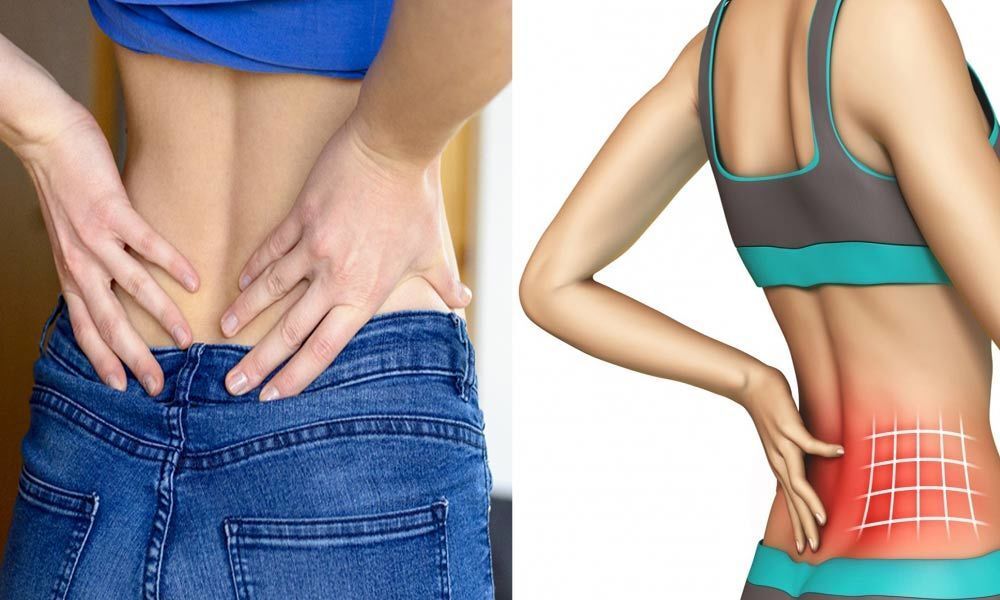Live
- CM Revanth Reddy Stresses Social Transformation in Telangana, Promises Quick Resolution to Employees' Issues
- Tripura Ranji Team Meets Governor Jishnu Dev Varma at Hyderabad Raj Bhavan
- The Government is Committed to Fulfilling Savitribai Phule’s Ideals: MLA Dr. Rajesh Reddy
- Rangavallulu: Reflections of Culture and Tradition.
- Educating Every Woman is Savitribai Phule’s Vision
- Freedom for Two Chenchu Couple from Bondage in Nagar Kurnool District
- Kalwakurthy Excise Officials Conduct Major Raids on Illegal Arrack Trade
- Traditional Healer in Ananthadi Offers Hope to Thousands with Herbal Remedies
- ACB Issues Notices to Officials in Formula E-Car Race Case
- CM Revanth Rules Out Regularization for Outsourcing Employees
Just In
Find out the reason for your back pain and how to overcome it


Dr Neha Narula, QI Spine Clinic explains why women are more prone to back pain and how to take charge
This International Women's Day take charge of your health. Whether you're a working woman or a housewife, massive workloads and long working hours, take a toll on your body. Your spinal cord, which is the pillar of your body, will be the most affected- back pain being one of the leading symptoms.
Women of different age groups experience back pain for reasons ranging from gradual wear and tear of bone and muscles to hormone level fluctuation, menstruation, pregnancy, and degenerative diseases at an advanced age.
"Back pain can be debilitating and life-changing. Home remedies such as hot and cold compress and pain killers only delay the right treatment. The pain usually returns after a short while," said Dr. Neha Narula, Senior Spine Specialist, QI Spine Clinic. "If you have a back pain that is recurrent in nature or doesn't improve even after taking rest, consult a spine specialist before it's too late," she added.
Women of different age groups suffer from back pain for different reasons. Following are some causes and tips to help overcome it:
If you're in your 20's
In order to avoid developing back pain at a young age, it is important to maintain the right posture. Avoid slouching, sitting in one place for a long period of time, limit the use of gadgets, especially mobile phones. Use laptop stands and ergonomic furniture if you have to work for long hours.
Tips: Warm up before exercising, utilise the right techniques while working out, avoid high heels and tight clothes, and don't carry over-weight backpacks- pack them using the right technique.
If you're in your 30's
Bone degeneration starts in your 30's. It is a normal biological process but improving the back muscles to prevent axial overload can delay the process.
Tips: Maintain the right posture while sitting, standing, bending (while picking up things or children) or lifting weights.
Take care of your spine during pregnancy. Bone resorption (calcium homeostasis) in lactating women results in bone loss- your basic nutrition should include calcium-rich food. Engage in pre-natal and post-natal exercise to strengthen the back muscles.
Strengthen your core muscles like abdomen muscles and glutes.
If you're in your 40's, 50's and 60's
After menopause, the rate of bone degeneration increases. This leads to a loss in bone mass (osteoporosis). Your back muscles weaken, increasing pressure on your spine, causing nerve impingement, the narrowing of the spinal canal (stenosis) or bone fuse. Other common conditions include disc protrusion and the development of bone spurs.
Tips: Exercise to build muscle strength so that your spine can carry your body weight better.
Take food and health supplements to compensate for bone mass loss.
If you have back pain, check with your doctor.
"Women's sex hormone- estrogen, plays a significant role in causing musculoskeletal degenerative diseases. Lack of it accelerates bone degeneration, post menopause for which women experience lower back pain more often." – Dr. Neha Narula, Senior Spine Specialist, QI Spine Clinic.

© 2024 Hyderabad Media House Limited/The Hans India. All rights reserved. Powered by hocalwire.com






